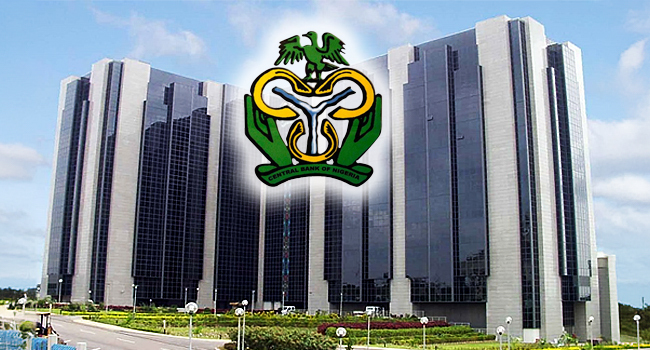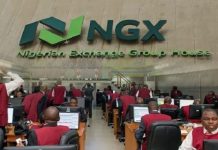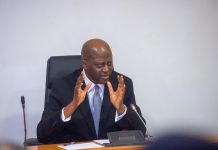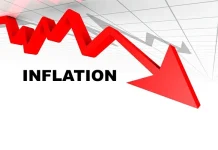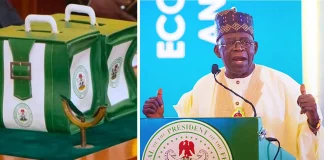🌿 Ruzu Non-Alcoholic Herbal Bitters
Ruzu Non-Alcoholic Herbal Bitters is a natural health supplement specially formulated to:
- ✅ Promote general wellness
- ✅ Detoxify the body
- ✅ Support the treatment of various ailments
Made from a powerful blend of 100% organic and medicinal herbs, Ruzu is completely alcohol-free, making it ideal for:
- 👪 All age groups
- 🌱 Health-conscious individuals
- 🌿 Anyone seeking non-alcoholic herbal remedies
Whether you're looking to boost your vitality, cleanse your system, or support healing the natural way, Ruzu Bitters offers a trusted herbal solution.
Since the Central Bank of Nigeria (CBN) recently introduced new policy measures, the Nigerian foreign exchange market has seen a remarkable shift marked by enhanced stability and transparency.
An important turning point in the nation’s economic reforms has been reached with these actions, which include the implementation of the Electronic Foreign Exchange Matching System (EFEMS), which has strengthened the naira versus the US dollar and restored investor confidence.
Officially unveiled on October 3, 2024, the EFEMS program is a daring step by the CBN to address persistent problems with speculation and opaqueness in the foreign currency market. The Nigerian Foreign Exchange Market (NFEM) authorized dealers are the target users of this system, which was created especially to make trading more organized and responsible. On December 2, 2024, following a successful two-week test run in November, EFEMS went into full operation. The outcomes were noticeable and immediate.
Within a month following EFEMS’ inception, the value of the naira rose by N125 versus the US dollar, from N1,660/$ on December 2, 2024, to N1,535/$ on January 3, 2025, according to statistics gathered from the CBN.
Governor Olayemi Cardoso of the CBN has been an outspoken supporter of these measures, emphasizing how crucial they are to promoting economic stability. “We have implemented important reforms to unify Nigeria’s exchange rate over the past year, removing distortions and reestablishing transparency,” Cardoso stated. He emphasized how this unification has enabled the CBN to settle unpaid foreign exchange debts, giving companies in a variety of industries—including manufacturing and airlines—the assurance they need to make long-term plans and investments. Noting that comparable systems have worked well in other markets, Cardoso also emphasized the significance of EFEMS in further improving the foreign exchange market’s functionality.
The CBN’s efforts are not independent, notwithstanding these developments. Governor Cardoso has urged Nigerian banks to take on more accountability in their functions as market makers and middlemen. He maintained that for a dynamic economy like Nigeria’s, a foreign exchange market that is only defined by the CBN’s purchases and sales of dollars is insufficient. “It’s time for banks to take on their market-making and intermediation roles, giving customers the best solutions to manage risks and operate their businesses,” Cardoso said.
The CBN published a policy on November 26, 2024, requiring all banks that trade in the interbank foreign exchange market to use the Bloomberg BMatch system in accordance with this order. With its launch on December 2, 2024, this platform seeks to improve the foreign exchange market’s operational efficiency and transparency even more.
Comprehensive criteria have been created by the CBN to guarantee the smooth functioning of EFEMS. In order to encourage efficiency and transparency, the minimum tradable quantity has been set at $100,000, with incremental clip sizes of $50,000. These rules were laid out in a circular sent to all banks by Omolara Duke, director of the CBN’s financial markets division. “The EFEMS initiative is intended to minimize counterparty risks, enforce adherence to CBN regulations, and guarantee transparent, equitable, and effective FX trading,” Duke said. Access to the EFEMS platform may be suspended or revoked as a result of serious penalties for breaking these rules.
While acknowledging the CBN’s accomplishments, Muda Yusuf, CEO of the Centre for the Promotion of Private Enterprise (CPPE), also emphasized the difficulties presented by the unregulated black market. Yusuf asserts that although the CBN’s actions are having a good impact, bringing about exchange rate convergence is still a difficult undertaking.
“This must be an ongoing effort because market manipulators and speculators are always coming up with new strategies,” Yusuf said. He said that these issues have been made worse by the unregulated black market, which has allowed for illegal activities like money laundering. “The black market supports a wide range of activities, including illicit ones. Its operations are driven by the fact that these transactions cannot pass via the official window, Yusuf clarified.
Systemic problems in the FX market, such as legacy problems and deceptive tactics, were also brought to light by Yusuf. “Most economies do not allow you to manipulate foreign exchange like this one does. Other places have far more stringent regulatory systems and enforcement, he noted. Some people take advantage of the system for their own benefit, which makes these issues worse due to the interaction between the official and illegal markets. Players in the formal market often have connections to black market operators, which is regrettable. These relationships keep things unstable,” Yusuf said. He is however upbeat about the developments, highlighting the necessity of purging the black market in order to guarantee a more secure and open FX system.
Read Also: Breaking: Lagos gov signs N3.366 trillion 2025 budget
Other measures have strengthened the stability of the naira in addition to EFEMS. The Nigerian Autonomous Foreign Exchange Market’s average daily turnover rose by 226 percent in the first half of 2024 compared to the same period in 2023, according to Governor Cardoso. Inflows into foreign portfolios have increased by more than 72% throughout this period, and foreign exchange reserves have increased from $32 billion in May 2023 to over $40 billion, the highest level in almost three years. A key measure of economic resilience, these reserves now cover eight months’ worth of imports.
The naira-dollar exchange rate is expected to remain stable until 2025 after stabilizing in the official foreign exchange market from July to December 2024. Yusuf ascribed this optimism to a number of elements, such as rising foreign reserves, strong remittances from the diaspora, and inflows from International Money Transfer Operators (IMTOs). Other actions have further enhanced the apex bank’s ability to intervene in the market, including the $2 billion Eurobond proceeds, a $500 million domestic dollar bond, and the CBN’s resolution of $7 billion in legacy FX commitments.
The Dangote and Port Harcourt refineries’ operationalization is another noteworthy event. By lowering reliance on outside currency flows and supporting the naira, these facilities should lessen the demand pressure on foreign exchange for gasoline imports. Yusuf also mentioned a slow but steady improvement in the non-oil export industry, which is expected to boost foreign exchange inflows.
The CBN-licensed authorized dealer banks and other permitted entities are among the participants whose duties and obligations are outlined in the EFEMS standards. As of right now, the system can only be used for transactions between the US dollar and the naira, but the CBN may decide to add other currency pairs. The apex bank reserves the right to monitor all transactions, publish trade data, and impose penalties for non-compliance. Dispute resolution mechanisms are also in place, ensuring that disagreements are first addressed bilaterally and, if necessary, escalated to higher authorities.

